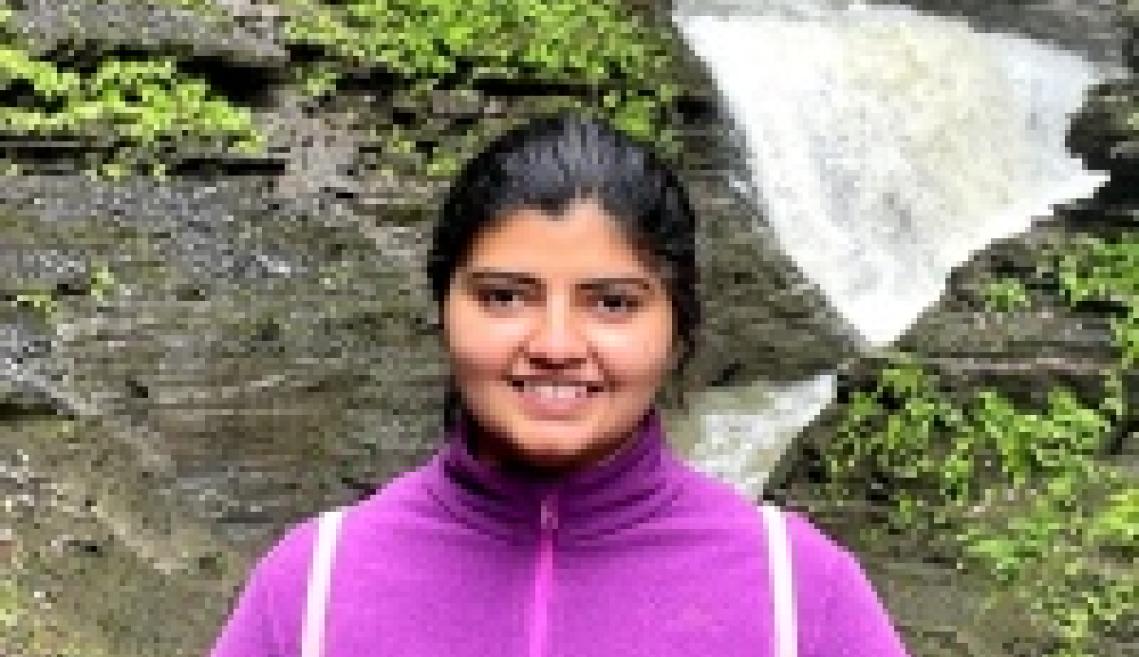
Glycine Jiang (Faculty Advisor Patrick Gibney)
What were you doing prior to your degree program?
I worked in Bordeaux and Burgundy for several vintages, first as an intern then progressing to assistant winemaker, after finishing my MSc in Enology and Viticulture from Bordeaux. During my production experience I realized that I wanted to gain a deeper understanding of the science behind winemaking and that led me here.
What courses have been most helpful so far?
Prof. Sacks' Wine Chemistry, Prof. Gibney's Wine Microbiology, and Prof. Dando's Sensory Science are all excellent and very illuminating. I have not only acquired the most current knowledge in these fields but I have also been inspired by their approach to teaching. They have shaped my scientific thinking and led me to the formation of my own research ideas.
What does your research focus on?
The current project I am working on is a Microbial Terroir survey. Through this survey, we aim to quantify the effect of microbial terroir on wine using analytical chemistry, metagenomic analysis, and sensory testing.
How did you come about choosing your research topic?
My past experience working in winemaking regions that celebrate terroir expression has planted a seed. Being in a wine microbiology lab, I have acquired the knowledge and tools to further investigate this fairly novel concept of Microbial Terroir.
What advice would you give to undergraduate students considering grad school?
If working in industry is your eventual goal like me, I think gaining some hands-on experience either through interning or actually working in the industry could be beneficial. In my case, these experiences helped me with defining clear goals of what I wanted to pursue in grad school.

Manushi Trivedi '24 (Faculty Advisor Justine Vanden Heuvel)
What were you doing prior to your degree program?
I graduated in geo-information science and earth observation specializing in natural resource management from ITC, University of Twente, the Netherlands, in 2020. During my graduate studies, I acquired the specialized skill sets of remote sensing for addressing agriculture challenges like crop mapping and monitoring, solving conflicts of interests of multiple stakeholders, etc. Before joining the Ph.D. at Cornell University in 2021, I worked six months at Ramani, a company based in the Netherlands, with the collaboration of the European Space Agency to address the global challenges with the use of remote sensing and cutting-edge technologies.
What does your research focus on?
I am planning to explore the use of different multi-spectral remote sensing technologies for guiding practices around vineyard nutrition. For example, I am using multi-source, readily available images to guide nutrient sampling on the ground so that petiole or leaf blade sampling becomes quicker, easier, and more precise. I’m also exploring traits of mycorrhizae fungi in grapevines vines using hyperspectral sensing.
What advice would you give to undergraduate students considering grad school?
Undergraduate studies aim to explore various sciences and arts involved in a major from which individuals can find a subject they enjoy studying the most. Since you all have found the subject you are passionate about, pursuing graduate school will help deepen your roots, especially by reading regularly. During graduate school, the industry and research exposure can be maximized by just a simple step: reading for an hour a day about the latest research and news of the

Kishun Ghalan '22 (Faculty Advisor Russell Moss)
What were you doing prior to your degree program?
I was running the Biotech Company Kalapas Biotech in Nepal as a CEO/Founder. I focused on leading the company and creating impacts on agriculture through providing high quality plantlets to farmers for commercial sustainable farming. I also oversaw research and development and helped speed commercialization.
What courses have been most helpful so far?
As an international student from a different culture and education system, I am amazed with all the beautifully designed courses containing extensive deep learning opportunities and interactive inquiry. I appreciate learning from faculty members who understand and are willing to help, and make sure I am on the right path. Finding faculty who are passionate about their work at Cornell gives me excitement to learn more.
What is your capstone project focused on?
As an MPS Student, I have many possible ways to design my capstone project. The process is flexible. Faculty members and advisors are focused on what you want as a professional and do their best to understand you. They don’t just stick to the syllabus. My capstone project focuses on learning vineyard management through analysis of data from satellite and drone technology, understanding remote sensing and finding ways to help commercial vineyards all over the world.
How did you come about choosing your capstone project?
I am from Nepal, a country with lots of beautiful hills and mountains. From a commercial perspective, it’s hard to imagine farming in hilly regions, even those with suitable climate. Focusing on remote sensing technology will bring huge advantages. I was excited and inspired to discover Cornell had facilities and research on advancements on farming.
What advice would you give to undergraduate students considering grad school?
Seek meaningful communication and understand more on the field about its career pathways. More than focusing on a master’s degree, develop your passion and learning towards it. When considering grad school, look for a university with diversity and flexibility in learning, and faculty that cares about your value, understanding your expectations, helping you to explore beyond the limit of your own rules and beliefs.
Glycine Jiang, Manushi Trivedi and Kishun Ghalan are graduate students at Cornell University.
Keep Exploring

News
- Cornell University Agricultural Experiment Station
- Agriculture
- Food

News
- Animal Science
- Agriculture
- Animals

We openly share valuable knowledge.
Sign up for more insights, discoveries and solutions.

